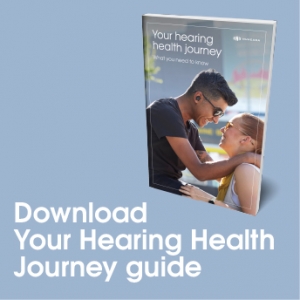Meniere’s Disease is a debilitating disorder that affects the inner ear. Upsetting the hearing and balance of an afflicted individual, complications from Meniere’s can include pressure or pain in the ear, vertigo, and/or tinnitus. According to Healthline:
“The National Institute on Deafness and Other Communication Disorders (NIDCD) estimates that 615,000 people in the United States have Meniere’s disease. Around 45,500 people are diagnosed each year. It’s most likely to occur in people in their 40s and 50s.”
Meniere’s Disease Causes and Progression
The cause of Meniere’s Disease is still not known. Medical professionals believe that the the primary culprit is changes in fluids in the ear, but further research is underway on links between Meniere’s and autoimmune disease, allergies, and genetics. Patients typically first experience symptoms in the 40’s and 50’s, though the disease can strike much earlier. The stages vary from person to person, but below is a typically progression of Meniere’s:
Early stages: Initially, a person with Meniere’s might suddenly face vertigo episodes lasting from just a few minutes up to a full 24-hour period. During an episode, sensations experienced may include blockage or pressure in the ear, or temporary hearing loss. Some experience tinnitus, the perception of a ringing or buzzing sound in the ears that won’t go away
For Ana, an early backer of IQbuds during the Indiegogo days, Meniere’s Disease was an unexpected punch to the gut. Born deaf on her left side, with profound hearing loss on her right, she had always dealt with her condition pretty well given the circumstances. That began to change several years ago, as she recounted in a recent Twitter thread about her 1st Meniere’s episodes:
However, an incident occurred, a year or so before my spinal fractures. I remember there was a sort of pop in my ear. A loud ringing, I thought it was just an ear infection… Or just pressure. But over the days it got worse. And sounds became more distant… As if in a tunnel.
— YennaMania (@YennaMania) May 16, 2019
It took a round of steroids, and 2 long, terrifying weeks before my hearing returned to what it was. My doctor gently warned me, it may happen again.
Years went by, and nothing did happen, until late 2017, the ringing began again, unprompted.— YennaMania (@YennaMania) May 16, 2019
In the middle stages of Meniere’s Disease, the symptoms can often go dormant for months at a time or longer. For most, the vertigo lessens in severity while hearing loss and tinnitus may progress. For Ana, years went by before she experienced the frightening progression of the disease:
I was told by my doctor these "attacks" would come and go, sometimes after months, sometimes maybe after just a week. But I was warned one day, it would not go away pic.twitter.com/4kF06HvgBM
— YennaMania (@YennaMania) May 16, 2019
With the onset of the late stages of Meniere’s disease, many patients will experience much less vertigo, or will even have it subside entirely. Unfortunately tinnitus and hearing loss typically worsen, leading to orientation issues, and problems with balance.
For many, beyond the physical afflictions of Meniere’s comes an intense psychological toll. Depression and anxiety are common, as hearing loss erodes confidence in conversations, and symptoms can flare up unexpectedly at inopportune times.
For Ana, the original IQbuds were one form of relief during Meniere’s attacks. Unfortunately her original pair stopped working after over two years of heavy use, leading her to make a desperate plea to her friends and online community:
Mineres attacks are an extremely isolating experience, and tormenting, (that ringing drives you insane). It is the dark tiny audio claustraphobuc space of the world.
Most insurance companies consider hearing aids cosmetic. And as you can see in the picture above
— YennaMania (@YennaMania) May 18, 2019
Meniere’s Disease Treatment
Meniere’s is unfortunately an incurable disease. However, there are ways to alleviate the symptoms to help maintain a better quality of life. According to Healthy Hearing, suggested dietary and lifestyle changes include:
- Decrease salt intake
- Decrease caffeine
- No Monosodium glutamate (MSG)
- Smaller meals
- No Smoking
- Stress management
Hearing aids are commonly prescribed to alleviate hearing loss, but for Ana, cost was a major factor. Thanks to the generosity of her friend’s and strangers alike, Ana recently saw her pleas answered, as she received a new pair of IQbuds BOOST and the recently-released IQstream TV.
NO WORDS CAN DESCRIBE MY EXCITMENT RIGHT NOW THAT MY @nuheara IS HERE
So lets go with "SQUEEEEEEE" pic.twitter.com/iB8ocHaktj
— YennaMania (@YennaMania) June 4, 2019
The Experience with IQbuds and BOOST for Ana & Others
After experiencing some improvement with the original IQbuds, Ana found even greater measures of relief from her Meniere’s symptoms with IQbuds BOOST:
Went to the mall with friends. And I am chatting away. Like its nothing.
All I can hear is amazingly crystal clear voices.
Even my perfectly abled hearing friends were struggling! But not me
These new @nuheara boost are beyond amazing !! *squee*
— YennaMania (@YennaMania) June 21, 2019
I love how @nuheara earbuds are both a affordable hearing aid alternative, and an amazing earbud for music and calls.
The fact that the USA allows health insurance companies to consider hearing aids "cosmetic" is a disgrace.
For a bicros aid (that's the type I would need) pic.twitter.com/XculRMhaHY
— YennaMania (@YennaMania) June 23, 2019
Check out another review from an IQbuds BOOST customer who experienced success with easing symptoms or simply finding a little relief from Meniere’s Disease:

IQbuds BOOST and other Nuheara hearing health products won’t guarantee improvement from Meniere’s symptoms. However, with a 30-day money-back guarantee backing any purchase made directly through Nuheara, consider purchasing IQbuds BOOST risk-free. If you have additional product questions or other needs, contact our friendly support team at [email protected]!


